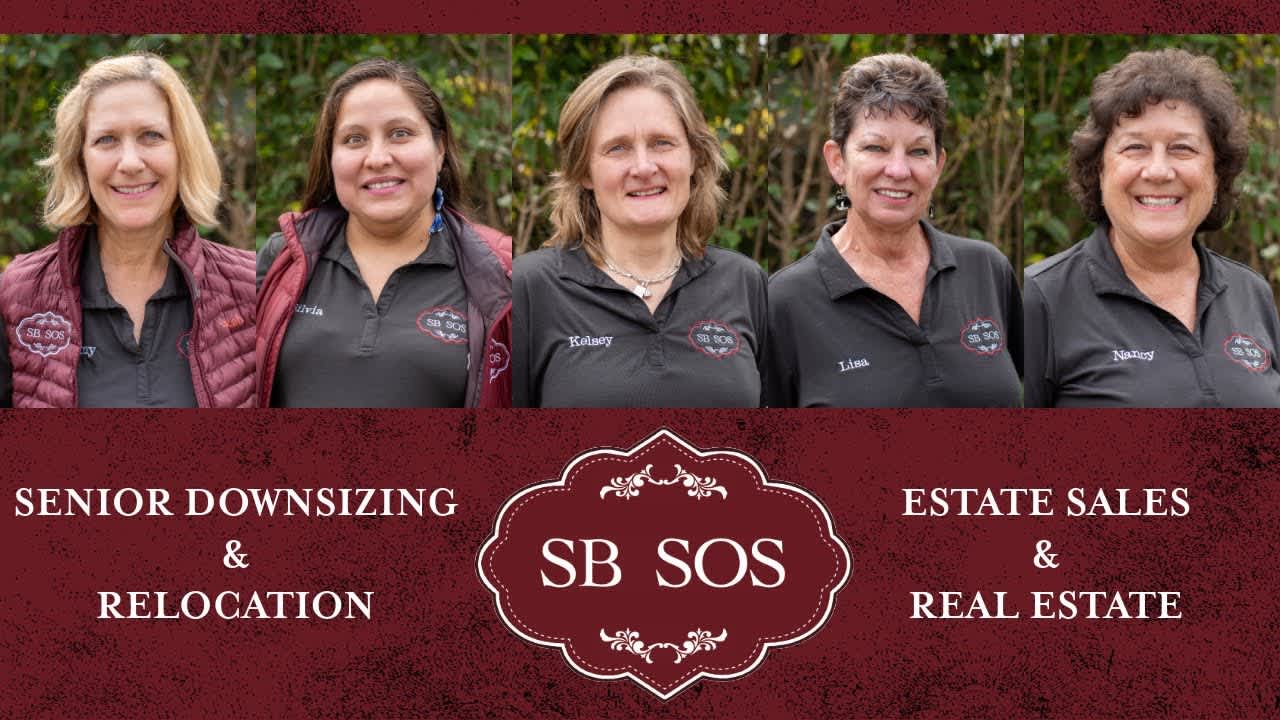Hoarding & Challenging Conversations with Family Members - Tips from Deborah & Kelsey Samuel
Many seniors in Santa Barbara and Montecito, CA, desire to downsize and improve their quality of life. However, sometimes, family members express concerns about their loved ones' hoarding behaviors. Deborah Samuel, Senior Specialist Realtor, and Kelsey Samuel, owner of SBSOS (Santa Barbara Senior Organization Support), understand the complexities of these situations and offer compassionate guidance. This blog explores how to approach these challenging conversations with sensitivity and support.
Understanding the Challenges: Beyond "Hoarding"
While "hoarding" is often used, the underlying issues are frequently more nuanced. Many seniors experiencing what appears to be hoarding are overwhelmed by life's daily tasks, leading to accumulated possessions. These situations often stem from physical and cognitive limitations. Examples include:
- Inability to manage paperwork or bills
- Difficulty with cooking and meal preparation
- Confusion regarding online subscriptions and automatic shipments
- Physical limitations hindering cleaning and organization
- Struggling with possessions from previous generations
- Excessive recycling due to lack of understanding or access to disposal services
- Grief and depression following the loss of a spouse
- Feeling overwhelmed by the sheer volume of items and the size of their home
While some situations fall under the clinical definition of hoarding disorder, these circumstances usually point to seniors being overwhelmed by their surroundings due to various limitations. Actual hoarding disorder typically involves a long-term pattern of acquiring and difficulty discarding possessions, often starting in younger years. Our team is here to help with no judgment.
Approaching the Conversation with Compassion
Addressing hoarding-like behaviors requires sensitivity and understanding. Here’s how friends and family can offer support:
- Educate Yourself: Understand hoarding disorder's causes, symptoms, and emotional impact. Information on hoarding fosters empathy and avoids judgment.
- Offer Nonjudgmental Support: Create a safe space for open communication. Actively listen and validate emotions. Help and support families. Show that you're there to help, not criticize.
- Encourage Professional Help: Gently suggest seeking help from mental health professionals specializing in hoarding disorder. Therapy provides coping mechanisms and support for the individual and their family.
- Be Patient and Understanding: Change takes time; decluttering can be incredibly overwhelming. Avoid rushing; this can increase anxiety and resistance. Celebrate small victories.
- Set Realistic Goals: Begin with small, manageable goals. Focus on one room or area at a time. Acknowledge their efforts and successes to build momentum.
- Assist with Organization: Offer help but respect their attachments. Ask permission before discarding items; focus on sorting rather than forcing decisions.
- Encourage Healthy Habits: Promote a healthy lifestyle through exercise, hobbies, and stress reduction techniques. Support services for hoarding
- Maintain Open Communication: Regular check-ins provide consistent support and encouragement.
- Create a Support Network: Engage other friends and family members to share the burden and offer diverse support.
- Take Care of Yourself: Supporting a loved one through this journey is emotionally taxing. Ensure you prioritize your well-being.
The Role of Deborah Samuel and SBSOS
Deborah Samuel, Realtor, and Kelsey Samuel, owner of SBSOS, understand the complexities of downsizing, particularly when hoarding or overwhelming possessions are involved. Deborah’s real estate expertise in Santa Barbara and Montecito ensures a smooth home sale. At the same time, Kelsey’s SBSOS team provides compassionate support, helping families navigate the emotional and logistical challenges of decluttering, organizing, and relocation. Their collaboration helps ease stress, providing the guidance and support necessary to navigate this difficult transition. SBSOS has extensive experience handling situations where hoarding has become an issue and can provide professional support in downsizing. We have proven experience with the challenges that might arise in sensitive family discussions regarding a senior client's home, family legacy, and possessions. We're here to support you and your family throughout the entire process.
Conclusion: Finding Compassionate Support
Addressing hoarding or overwhelming possessions in seniors requires understanding, patience, and compassion. With the help of family, friends, and professionals like Deborah Samuel and Kelsey Samuel, you can provide meaningful support, making this challenging transition easier. Contact us today. We have helped many local Santa Barbara and Montecito families in these difficult situations.
Contact Deborah Samuel, Realtor, and Kelsey Samuel, owner of SBSOS today!
Are you facing an excess of challenges with a senior loved one? Deborah Samuel and SBSOS offer compassionate downsizing solutions. Contact us today!













